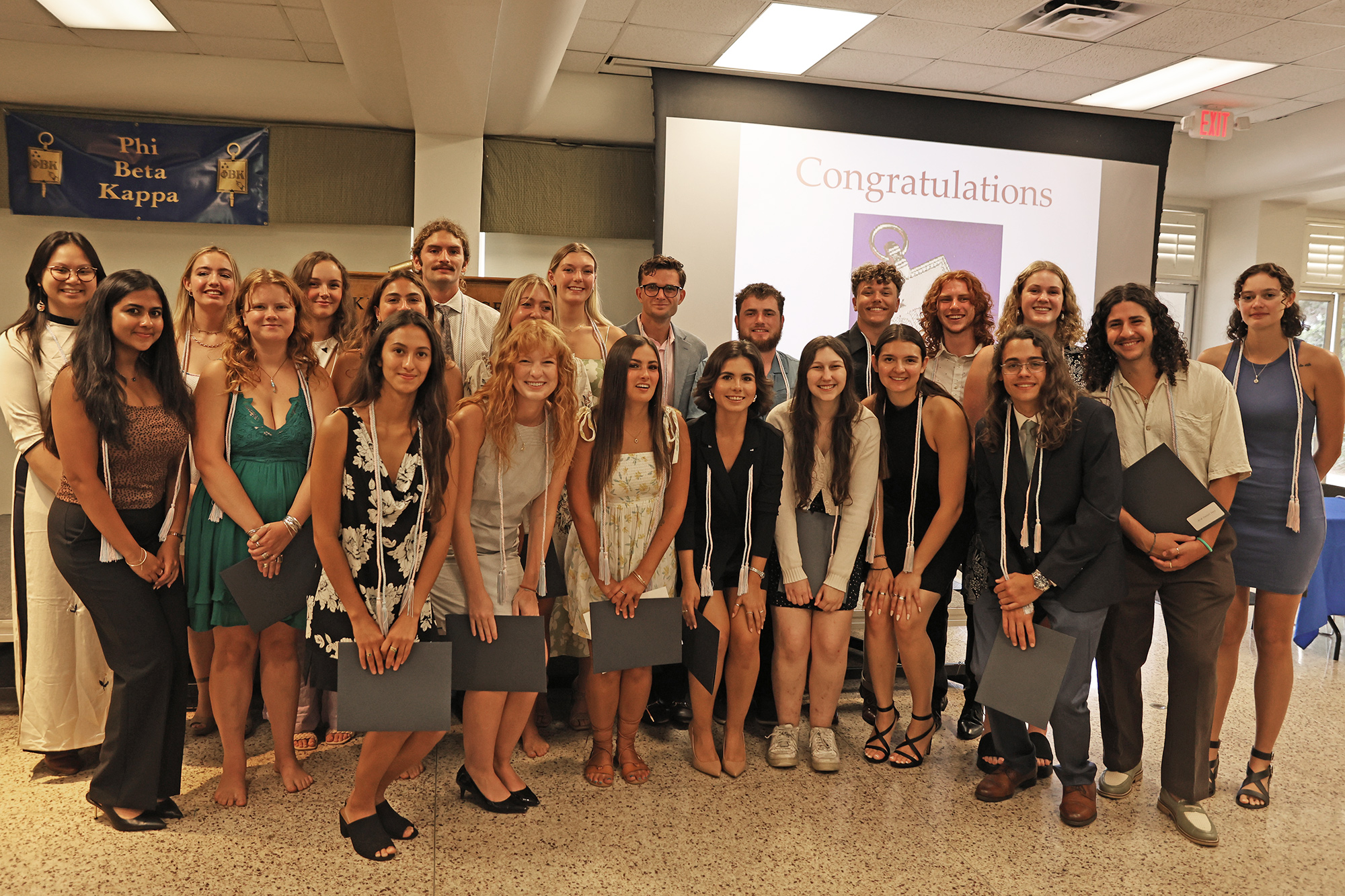
Phi Beta Kappa
Founded in 1776, Phi Beta Kappa is this nation’s oldest and best known society for recognition of academic excellence and scholarly achievement.
The Eckerd College Chapter of Phi Beta Kappa, Zeta of Florida, was established in 2004 and has received recognition for its commitment and programming. Eckerd is among only 10% of American colleges and universities that have a chapter of Phi Beta Kappa.
Charter
WHEREAS, the liberal principles of our Society should not be confined to any particular place, person or description of persons, but should be extended to the wise and virtuous of whatever community;
WHEREAS, we, the members of PΒΚ as a body dedicated from its very founding in the historic year one thousand seven hundred and seventy-six at the College of William and Mary in Virginia to the ideal of excellence in scholarship in the liberal arts and sciences, are willing and desirous to propagate the Society in praiseworthy institutions of higher learning; and
WHEREAS, we are satisfied that you are inspired by an unquenchable desire that your institution be added to the notable company which enjoy the recognition of PΒΚ, and we have carefully determined that your institution is possessed of the character and standing which make it particularly worthy of admittance into this association and friendship;
Therefore, by virtue of resolution duly adopted by our representatives in the fortieth triennial Council of the Phi Beta Kappa Society, we have decreed the establishment at this time of a chapter of PΒΚ in EckerdCollege in the State of Florida, to be known as the Zeta of Florida.
FURTHERMORE, we have commanded that there issue under the seal of the Society and the hands of the President and the Secretary this Charter in the name of PΒΚ.
Accordingly, you and such others as you may hereafter elect and associate with yourselves in conformity to the law of PΒΚ, and your and their successors so elected and associated are hereby incorporated and established as a separate and coordinate branch of the Society and are hereby granted all the powers, privileges, and benefits thereunto appertaining, in as full and ample measure as the members of the existing chapters enjoy: there being at the same time enjoined upon and required of you, in the organization and conduct of the chapter and as conditions upon which this Charter is granted, strict compliance with the Constitution and Bylaws of the Phi Beta Kappa Society, with the acts of the Council and the Senate, and with the Chapter Constitution herewith transmitted to you; and likewise a devoted effort always to protect the name and the key of PΒΚ from imitation and indignities and faithfully to promote the purposes of the Society.
In Testimony Whereof, the President and the Secretary of the Phi Beta Kappa Society have hereunto set their hands and caused to be affixed its seal this twenty-seventh day of February, anno Domini two thousand and four.
Members
Officers
- Dr. Lisa Bonner, President
- Dr. James Janack, Vice President
- Dr. Crystal Young-Erdos, Recording Secretary
- Dr. April Schwarzmueller, Registrar for New Members
- Dr. Benjamin Chemel, Treasurer
- Dr. Marjorie D. Sanfilippo, Historian
Chapter Members
- James Annarelli
- Victoria Baker
- Lisa Bonner
- Jewel Brooker
- Margaret Brown
- Scott Campion
- Lloyd Chapin
- Jennifer Chapman
- Adam Colby
- Anne Cox
- Mark Davis
- Martin Davis
- Donald R. Eastman
- Harry Ellis
- Julienne Empric
- William Felice
- Michel Fougeres
- James Goetsch
- Miranda Goodman-Wilson
- Catherine Griggs (deceased 2022)
- Amanda Hagood
- Richard Hallin
- Jennifer Hall
- Suzan Harrison
- James Janack
- Carolyn Johnston
- Dominique Lazarre
- Jane McBride
- Peter Meinke
- Nazarré Nathaniel Merchant
- Antonio Melchor
- William Parsons
- Peter Pav
- Christopher Rowland
- Marjorie Sanfilippo
- Ashley Scheu
- April Schwarzmueller
- Dawn Sheddon
- Laura Singleton
- Joel Thompson
- Laura Wetzel
- Crystal Young-Erdos
Charter Members
- Constantina Rhodes Bailly
- Victoria J. Baker
- Lloyd W. Chapin
- Margaret N. Cooley
- Anne J. Cox
- Mark H. Davis
- Mark B. Fishman
- James R. Goetsch, Jr.
- Catherine M. Griggs (deceased 2022)
- Jennifer A. Hall
- Richard R. Hallin
- William F. McKee
- Anne Austin Murphy
- William H. Parsons
- Peter A. Pav
- John E. Reynolds III
- Marjorie D. Sanfilippo
- April E. Schwarzmueller
- Edward I. Stevens
- Laura Reiser Wetzel
- William C. Wilbur
Foundation Members
- Jewel Spears Brooker
- Miles C. Collier
- Donald R. Eastman III
- Peter Meinke
- Susan Russ Walker ’77
Phi Beta Kappa Alumni Organization of Tampa Bay is the local association drawing Phi Beta Kappa alumni from institutions across the country, who reside in the Tampa Bay area.
Requirements
Election to membership in Phi Beta Kappa is an honor typically conferred upon fewer than ten percent of each graduating class. Students do not apply for membership but are selected during the spring semester each year by the Phi Beta Kappa chapter as a whole, after a careful review of the academic records of each eligible candidate. Members are generally elected in their senior year, but the chapter may elect deserving juniors as well.
Election is based upon the evidence of broad cultural interests, scholarly achievement, and good character. Candidates for membership should have a distinguished record of performance in liberal arts courses, exclusive of professional and vocational training, internships, and practica. They should demonstrate a broad exposure to the liberal arts — fine arts, humanities, languages, mathematics, natural sciences, and social sciences — as well as substantial work in areas outside their major.
Election to membership in Phi Beta Kappa is wholly within the discretion of the members of the local chapter, subject only to the limitations imposed by the chapter constitution and bylaws. There is no right to election solely by reason of fulfillment of a minimum grade point average. Although the honor bestowed by membership in the Society recognizes academic achievement, the qualifications for election to Phi Beta Kappa are entirely independent of the academic policies of Eckerd College, and it should not be assumed that fulfillment of the requirements for graduation with high honors renders one automatically eligible for election to Phi Beta Kappa.
Some Specific Minimal Criteria for Selection
- Senior standing (except in rare cases).
- The completion of at least three semesters at Eckerd and being registered for a fourth.
- 24 of 32 semester-length classes must be in liberal work. Liberal work is defined as courses in traditional liberal arts subjects (humanities, fine arts, languages, sciences, social sciences), excluding courses in vocation-oriented areas such as management and international business. In addition, courses that focus on the acquisition of specific skills and techniques do not count as liberal work. Examples of such courses are studio art and music classes, composition classes, applied speech and communication classes, and internships.
- Majoring in a liberal arts discipline (for example, something other than international business, management, or information systems).
- At least a 3.75 grade point average in liberal arts classes, excluding courses in “applied or professional work”—that is, courses in vocation-oriented areas such as management and international business, or courses that focus on the acquisition of specific skills and techniques. (See #3 above)
- The demonstration of knowledge of a foreign language equivalent to completion of the intermediate college level (that is, two years). This requirement may be met by a proficiency test.
- The demonstration of knowledge of mathematics at least minimally appropriate for liberal education. The mathematics requirement may be fulfilled by completing any mathematics, statistics, or formal logic course that satisfies the computational requirement at Eckerd College.
Newest Student Inductees
Newly Elected Members 2021
Each year the chapter elects new members in course according to requirements established by Zeta Chapter of Florida and approved by the National Phi Beta Kappa Organization.
Seniors
- Adriana Lorraine Asef-Sargent
- Branwen Armstrong
- Hannah Balmer
- Kelly Josephine Blend
- Bostony Cruz Braoudakis
- Celina Ceballos
- Evan Gray Coit
- Ally Turner Coughlan
- Samantha Crankshaw
- Kayla Love Drake
- Emanuel Ryan Epstein
- Laila Forstmane
- Alexandra Marie Gifford
- Madison Diane Gumprecht
- Tess Nicole Hancock
- Catlin Harper
- Sloan Adeline Jarvis
- Kelly Ann Krause
- Emilee Beth LeMaire
- Raina Marie Martin
- Sofia Margaret McNally
- John Harvey Moore II
- Jennifer Kayleigh Necker
- Kristen Kelley Nissley
- Ronan Ellen O’Donoghue
- Liat Paradise
- Quin Rodes Puckett
- Prithvi Rajesh
- Isabela Ríos Amador
- Meaghan Anne Roberti
- Alyssa Romano
- Brandon Jeffrey Rose
- Stephanie Mae Sarette
- Taylor Love Selby
- Allyson Christine Sharbo
- William James Shedden
- Katie Sklaver
- Luci Sweitzer
- Koen Charles Varley
- Ella Gray Vicedomine
- Miranda LeAnne Walterbach
- Maddie White
- Nadine Karis Wong
Juniors
- Sophia Chernoch
- Allana Grace Crawford
- Hana Alexander Koilpillai
- Rachel Dawn Kuklinski
- Kayla Michelle Martin
- Kelli Villella Martin
- Erin Bailey Matozel
- Maxwell Emery Miller
- Elle Schoonveld
- Leah Bess Totman
- Renee Irene Veldman
- Carole Anne Walker
Peter Pav Student Scholars
Peter Pav Scholars 2022
Peter Pav Phi Beta Kappa Scholars are students whose academic records after two terms of study at Eckerd College are outstanding, and who give promise of being future members of Phi Beta Kappa.
- Lily Grace Barrentine
- Lyla Sullivan Blanchard
- Morgan Elizabeth Brown
- Karin Ruth Ebey
- Madison Josephine Enman
- Kira Skye Taylor Fink
- Victoria Grace Germany
- Kaitlyn Alexandra Glover
- Ana Sofia Juarez Mora
- Menachem Avraham Kapuler
- Rickert Lloyd Koch Johannsen
- Isobel Anwyn Morton
- Mariana Olivares-Cely
- Sydney McKeon Paull
- Geri Ann Poston
- Signe Elizabeth Renstrom
- Nayeli Ann Rosado
- Lily Dunbar Schwartz
- Rachel Ann Smith
- Sascha Carolyn Taylor
- Hailey Nicole Thomas
- Jenna Ann Weisman
Visiting Scholars
The Phi Beta Kappa Visiting Scholar Program offers undergraduates the opportunity to spend time with some of America’s most distinguished scholars. Our chapter has brought the following scholars to Eckerd for campus-wide presentations:
- 2019-20 Paul Robbins (Environmental Studies)
- 2018-19 Marianne Janack (Philosophy)
- 2017-18 Osamu James Nakagawa (Art)
- 2016-17 William Bialek (Physics)
- 2015-16 Hazel Carby (American Studies, Literature)
- 2013-14 Timothy Bromage (Paleontology, Dentistry)
- 2011-12 Sir Peter Crane (Environmental Studies)
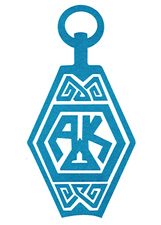 Alpha Kappa Delta
Alpha Kappa Delta
Founded in 1920, Alpha Kappa Delta is an international sociology honor society with more than 80,000 members and over 490 chapters United States, Canada, China, Finland, the Philippines, Taiwan, and Singapore, and has inducted.
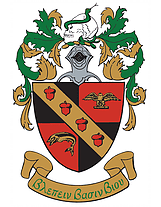 Beta Beta Beta
Beta Beta Beta
TriBeta is the national biology honor society for students dedicated to improving the understanding and appreciation of biological study and extending boundaries of human knowledge through scientific research. Since its founding in 1922, more than 200,000 persons have been accepted into lifetime membership, and more than 626 chapters have been established throughout the U.S. and Puerto Rico.
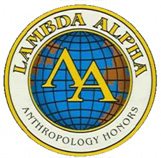 Lambda Alpha
Lambda Alpha
Lambda Alpha is the national honors organization for anthropology. Eckerd’s chapter of Lambda Alpha is Zeta of Florida. The honor society encourages scholarship and research in anthropology by recognizing and superior achievement in the discipline among students and faculty.
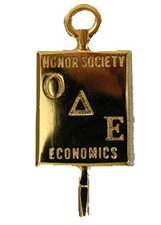 Omicron Delta Epsilon
Omicron Delta Epsilon
Omicron Delta Epsilon is one of the world’s largest academic honor societies, recognizing scholastic attainment and honoring of outstanding achievements in economics. Currently, Omicron Delta Epsilon has 652 chapters located in the United States, Canada, Australia, the United Kingdom, Mexico, Puerto Rico, South Africa, Egypt, France, and United Arab Emirates.
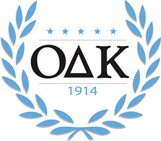 Omicron Delta Kappa
Omicron Delta Kappa
Omicron Delta Kappa, the National Leadership Honor Society, was founded in 1914 and recognizes leadership of exceptional quality and versatility, service in extracurricular activities and encourages development of general campus citizenship.
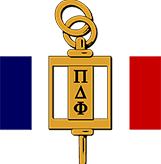 Pi Delta Phi
Pi Delta Phi
Pi Delta Phi is the National French Honor Society. It is the highest academic honor in the field of French; it recognizes outstanding scholarship in the French language and Francophone literatures, increases the knowledge and appreciation for the cultural contributions of the French-speaking world, and encourages French and francophone cultural activities. More about Eckerd’s chapter of Pi Delta Phi.
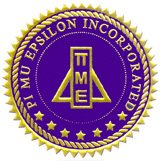 Pi Mu Epsilon
Pi Mu Epsilon
Pi Mu Epsilon is dedicated to the promotion of mathematics and recognition of students who successfully pursue mathematical understanding.
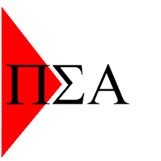 Pi Sigma Alpha
Pi Sigma Alpha
Pi Sigma Alpha, the National Political Science Honor Society, is the only honor society for college students of political science and government in the U.S. Pi Sigma Alpha is a member of the Association of College Honor Societies (ACHS) and is designated as a “Specialized, Upper-Division” society by ACHS.
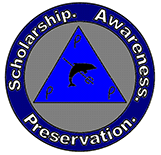 Rho Rho Rho
Rho Rho Rho
Tri-Rho is the national honor society for Marine and Atmospheric sciences. The purpose of Tri-Rho is to recognize scholarship in Marine and Atmospheric sciences, and to promote awareness and aid in the preservation of marine and terrestrial environments.
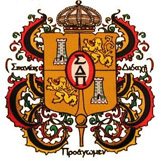 Sigma Delta Pi
Sigma Delta Pi
Sigma Delta Pi, the National Collegiate Hispanic Honor Society, was established in 1919 and honors those who attain excellence in the study of the Spanish language and culture as well as encouraging a deeper understanding of Hispanic culture.
 Sigma Xi
Sigma Xi
Founded in 1886, Sigma Xi, The Scientific Research Society is a non-profit membership society of more than 70,000 scientists and engineers who were elected to the Society because of their research achievements or potential.
About
Founded in 1886, Sigma Xi, The Scientific Research Society is a non-profit membership society of more than 70,000 scientists and engineers who were elected to the Society because of their research achievements or potential. Today, it is an international, multidisciplinary research society whose programs and activities promote the health of the scientific enterprise and honor scientific achievement. There are nearly 65,000 Sigma Xi members in more than 100 countries around the world. Sigma Xi has more than 500 chapters at universities and colleges, government laboratories and industry research centers. In addition to publishing American Scientist, Sigma Xi awards grants annually to promising young researchers, holds forums on critical issues at the intersection of science and society and sponsors a variety of programs supporting honor in science and engineering, science education, science policy and the public understanding of science.
Pledge of the Society
“Do you hereby pledge yourself, in accordance with the purposes and objectives of Sigma Xi, The Scientific Research Society, to encourage original investigation in science, to foster companionship and cooperation among scientists, to maintain honor, integrity and honesty in all scientific activities, and to assume the other continuing responsibilities of membership”?
Benefits
Through Sigma Xi chapters, members enjoy opportunities to network with research colleagues and contribute to programs that impact local communities and institutions.
Grants-in-Aid Research Program is open to all undergraduate and graduate students. Certain funds are restricted for use by individuals who are nominated by Sigma Xi members or who are members themselves.
Subscription to American Scientist, award winning and illustrated, since 1913 it has been dedicated to communicating research developments across disciplinary lines.
Subscription to Sigma Xi Today, the society newsletter.
Chapter newsletter and website that keeps you updated on all of our events, including our evening seminars, social gatherings, and annual banquet.
At least once a year, our chapter hosts a scientist of national recognition who presents his/her research.
Discounts on subscriptions to Nature and Annual Reviews, as well as a 10 percent discount on all Sigma Xi publications and merchandise.
Many members have observed that the most valuable benefits of Sigma Xi are the intangibles, especially the support of Sigma Xi programs that address ethics, education, public understanding of science, and the health of the research enterprise.
Join
How Do You Become a Member of Sigma Xi?
Membership is by nomination. Nominations must be made and seconded by currently active FULL members of Sigma Xi. Research aptitude must be evidenced by independent investigation, which will lead to publication or peer-acceptance of the work. If you are member and have someone to nominate, please let one of the chapter officers know and we’ll initiate the required paperwork.
Please note that membership in the Society is not linked to the possession of any degree or contingent upon belonging to some other organization.
There are two types of membership:
Full Membership
Graduate students, post-docs, research associates, faculty or any individual who has shown noteworthy achievement as an original investigator in a field of pure or applied science are qualified for nomination for Full Membership. This noteworthy achievement must be evidenced by publication as a first author on two articles published in a refereed journal, patents, written reports or a thesis or dissertation. Only Full Members may nominate other candidates to the Society or vote in the annual Assembly of Delegates. In addition, only Full Members are eligible to serve on Sigma Xi committees or take office on the Board of Directors.
Associate Membership
Undergraduates or individuals who have, through initial research achievement in a field of pure or applied science, demonstrated aptitude for research, may be nominated for Associate Membership. An individual who has conducted independent investigation and written a report concerning their research is eligible for election to Associate Membership. The individual is expected to later achieve the requirements for Full Membership. Nominators are attesting to the nominee’s potential to be promoted to Full Membership in the future. Associate Membership is offered to encourage young investigators with promise to continue careers in research.
An Associate Member may be promoted to Full Membership once they have published as primary author or demonstrated other noteworthy achievements in research. Please see the Full Membership qualifications above. Only Full Members may nominate other candidates to the Society or vote in the annual Assembly of Delegates. In addition, only Full Members are eligible to serve on Sigma Xi committees or take office on the Board of Directors.
Non-Discrimination Policy
Neither Sigma Xi, nor any chapter of Sigma Xi, shall discriminate against candidates for election to membership on the basis of race, religion, sex, age, national origin, or disability.
Contact Us
Treasurer & Secretary
Nancy Smith
Associate Professor of Marine Science & Biology
If you would like to contribute a modest amount of your time to bringing the wonder of science to the public and campus community, you can become more active in Sigma Xi. We are always looking for new officers and committee chairs. The new term of office begins July 1st of every year. It’s never too early to let us know of your interest. Contact one of the current officers to express your interest in helping out, even if you don’t know any of them. We are friendly and looking for new faces and ideas.
Sigma Xi, The Scientific Research Society
P.O. Box 13975
3106 East NC Highway 54
Research Triangle Park, NC 27709
Phone: 800.243.6534 or 919.549.4691
Fax: 919.549.0090
www.sigmaxi.org
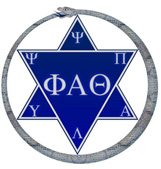 Phi Alpha Theta
Phi Alpha Theta
Phi Alpha Theta is the national honor society for history. The organization encourages the study of history, and recognizes excellence in the field among students and faculty. The society also encourages the exchange of ideas among historians.
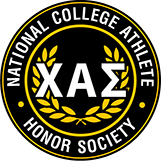 Chi Alpha Sigma
Chi Alpha Sigma
Chi Alpha Sigma (XAΣ) recognizes student-athletes from accredited four-year NCAA, NAIA, USCAA or NCCAA institutions who excel in both the classroom and competition. Chi Alpha Sigma was founded in 1996 to provide outstanding student-athletes with an opportunity to become connected within a fraternal association that aligns their educational and athletic successes for a lifetime.
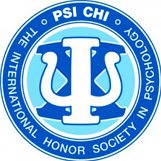 Psi Chi
Psi Chi
Psi Chi is the International Honor Society in Psychology, founded in 1929 for the purposes of encouraging, stimulating, and maintaining excellence in scholarship, and advancing the science of psychology.





